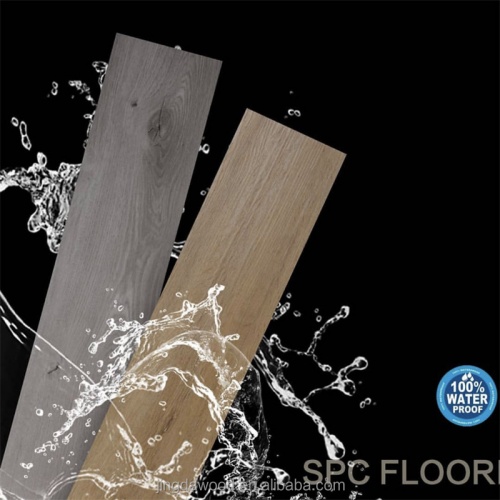Advantages and Disadvantages of SPC Flooring
SPC (Stone Plastic Composite) flooring is a type of rigid core luxury vinyl flooring that has gained popularity in recent years. SPC flooring offers several advantages and disadvantages that homeowners should consider before making a flooring choice. Let's explore the key pros and cons of SPC flooring:
Advantages:
Waterproof: One of the most significant advantages of SPC flooring is its waterproof properties. The stone plastic composite core makes SPC flooring highly resistant to water, making it an excellent choice for areas prone to moisture, such as bathrooms, kitchens, and basements.
Durability: SPC flooring is highly durable and resistant to scratches, dents, and stains. The rigid core construction provides stability and enhances the overall strength of the flooring, making it suitable for high-traffic areas in the home.
Easy Maintenance: Cleaning and maintaining SPC flooring is simple and requires minimal effort. Regular sweeping, vacuuming, or mopping with a damp cloth is usually all it takes to keep SPC flooring looking clean and fresh.
Comfort Underfoot: Despite its rigid core construction, SPC flooring can be more comfortable underfoot compared to other hard flooring options like tile or laminate. Some SPC flooring products come with attached underlayment for enhanced comfort and sound insulation.
Versatility in Design: SPC flooring is available in a wide range of designs, colors, and textures, including wood-look and stone-look options. Homeowners can find SPC flooring to suit various interior styles and preferences.
Sound Transmission:SPC flooring, especially when installed additional underlayment, can transmit sound and impact noise more readily than softer flooring options. This can be a concern, especially in multi-story homes or apartments.
Installation Options: SPC flooring can be installed using the floating method, making it DIY-friendly and quick to install. Some SPC products feature click-lock systems that make installation easy and efficient.
Disadvantages:
Hardness: SPC flooring, like other rigid core products, can feel hard underfoot compared to softer flooring options like carpet or vinyl. Some individuals may find SPC flooring less comfortable to stand or walk on for extended periods.
Cost: While SPC flooring offers durability and water resistance, it can be more expensive than traditional luxury vinyl or laminate flooring options. Homeowners on a tight budget may find the initial cost of SPC flooring to be higher than other alternatives.
Repair Difficulty: In the event of damage, SPC flooring can be difficult to repair. Unlike hardwood, which can be sanded and refinished, damaged SPC planks typically need to be replaced, which can be costly and time-consuming.
Limited Resale Value: While SPC flooring is a durable and attractive option, some buyers may prefer natural hardwood or tile flooring, which could impact the resale value of a home with SPC flooring. In certain real estate markets, premium flooring options may hold more appeal for potential buyers.
In summary, SPC flooring offers a waterproof, durable, and versatile flooring solution for many homeowners. By considering the advantages and disadvantages outlined above, homeowners can determine whether SPC flooring is the right choice for their specific needs and preferences.







